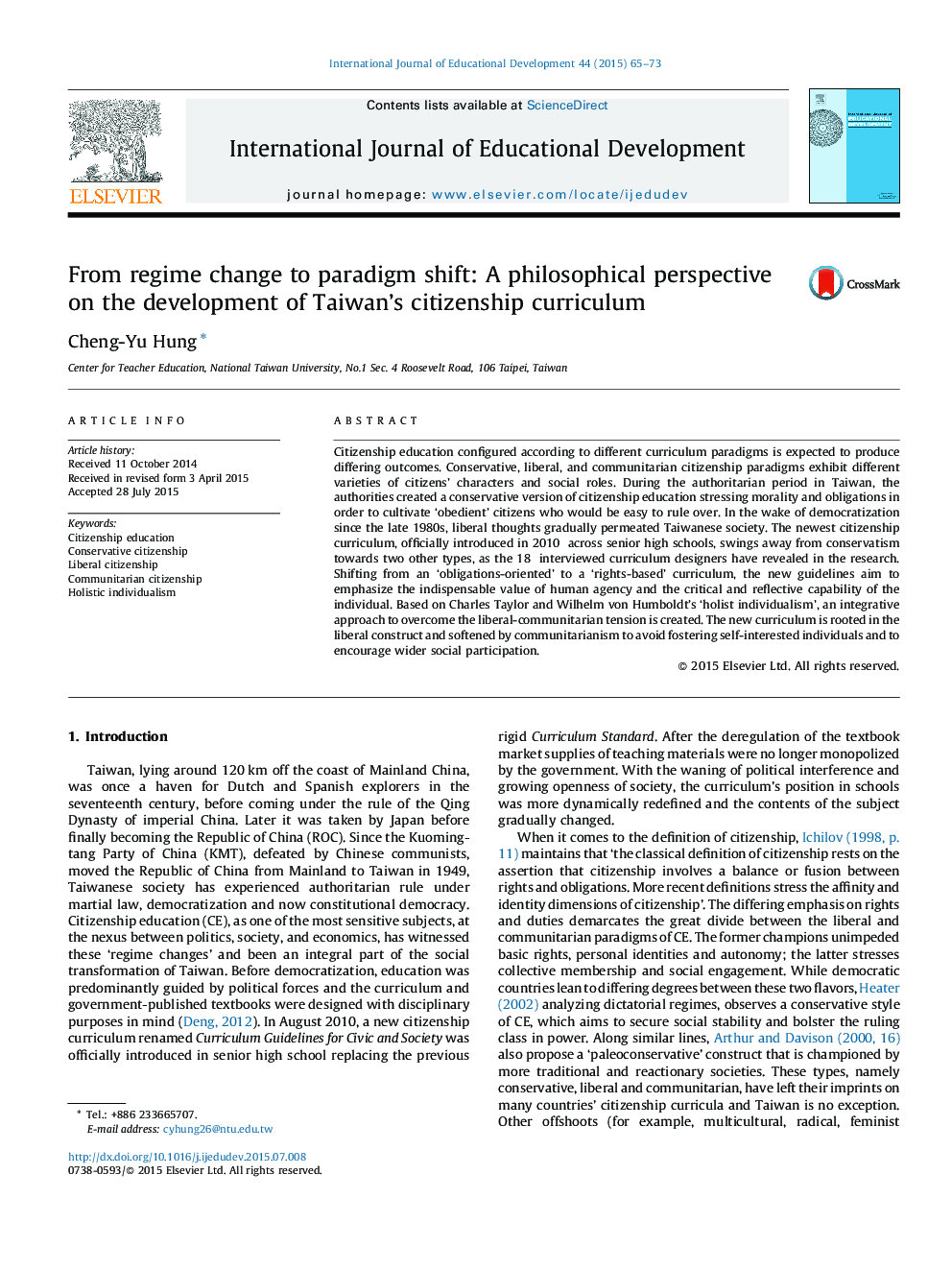| Article ID | Journal | Published Year | Pages | File Type |
|---|---|---|---|---|
| 356057 | International Journal of Educational Development | 2015 | 9 Pages |
Citizenship education configured according to different curriculum paradigms is expected to produce differing outcomes. Conservative, liberal, and communitarian citizenship paradigms exhibit different varieties of citizens’ characters and social roles. During the authoritarian period in Taiwan, the authorities created a conservative version of citizenship education stressing morality and obligations in order to cultivate ‘obedient’ citizens who would be easy to rule over. In the wake of democratization since the late 1980s, liberal thoughts gradually permeated Taiwanese society. The newest citizenship curriculum, officially introduced in 2010 across senior high schools, swings away from conservatism towards two other types, as the 18 interviewed curriculum designers have revealed in the research. Shifting from an ‘obligations-oriented’ to a ‘rights-based’ curriculum, the new guidelines aim to emphasize the indispensable value of human agency and the critical and reflective capability of the individual. Based on Charles Taylor and Wilhelm von Humboldt's ‘holist individualism’, an integrative approach to overcome the liberal-communitarian tension is created. The new curriculum is rooted in the liberal construct and softened by communitarianism to avoid fostering self-interested individuals and to encourage wider social participation.
